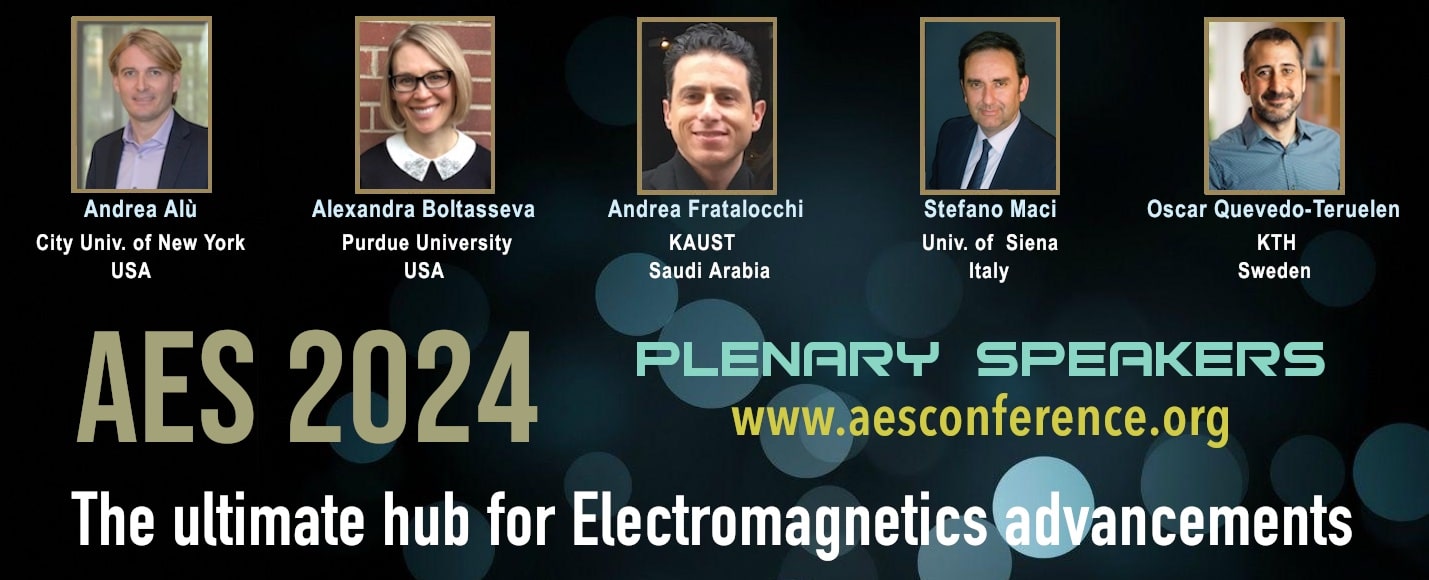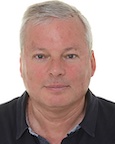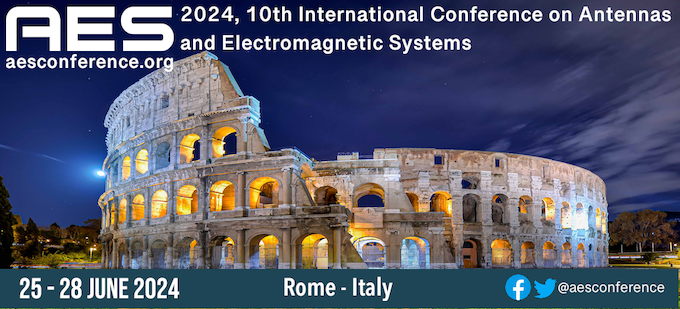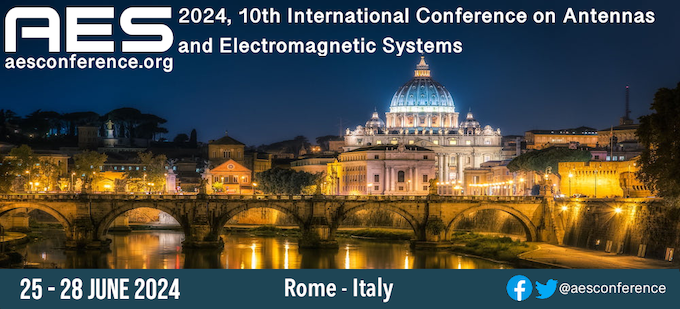AES 2024
The 10th International Conference on Antennas and Electromagnetic Systems
Rome, Italy, 25 - 28 June, 2024
AES 2025 will take place in Tangier - Morocco: website

Be part of AES 2024 conference!
Join the International Conference on Antennas and Electromagnetic Systems (AES 2024) and be a part of the latest advancements and discussions in the field. This conference provides an opportunity for scientists, engineers and researchers to share and exchange ideas and research on antennas, electromagnetics, propagation and measurements. With a focus on current hot topics such as 5G propagation, MIMO and array antennas, optical nano-antennas, scattering and diffraction, computational electromagnetics, radar systems, plasmonics and nanophotonics, and advanced EM materials and structures like metamaterials and metasurfaces, AES 2023 is a must-attend conference for professionals in the field.
The conference will be held from Tuesday 25 to Friday 28 June 2024 and will include plenaries, keynotes, special invited sessions and tutorials.

 |
 |
|
Stefan Wabnitz Sapienza Università di Roma |
Said Zouhdi France |
Videos from past AES conferences
From EBG’s to Meta-Surfaces and Beyond: Recent Developments and Novel Engineering Applications
Yahya Rahmat-Samii, University of California, Los Angeles (USA)
This plenary talk will review the development of various electromagnetic meta-structures, as well as the state of-the-art concepts, designs and manufacturing techniques including Fused Deposition Modeling (FDM), Stereolithography (SLA), Direct Metal Laser Sintering (DMLS), Inkjet printing and Charge-Programmed Multimaterial 3D Printing. Furthermore, a wealth of practical examples will be presented to illustrate promising applications of these intriguing concepts.
Microwave Antennas and Systems for Space Applications
Goutam Chattopadhyay, NASA-Jet Propulsion Laboratory (USA)
Fundamental science questions drives the selection of NASA missions. We develop instruments to make measurements that can answer those science questions. In this presentation, we will present an overview of the state of the art instruments that we are currently developing and layout the details of the science questions they will try to answer.
The challenge of simulation in modern antenna design
Marta Martínez-Vázquez, Renesas Electronics Europe (Germany)
This presentation analyses the trends for automotive radar systems, including high-definition imaging and new sensor architectures. The focus will be on RF performance and its impacts on the frontend design. Design bottlenecks like the interface between the MMIC and the radar board, electromagnetic interference or the effect of the casing and the fascia will be discussed.
Gap Waveguide Technology Helps Design Efficient Antennas Arrays for mmWave Applications
Ahmed A. Kishk, Concordia University (Canada)
Gap waveguide (GWG) technology will be introduced in this talk, which is a highly efficient guiding structure at millimeter-wave bands. It is self-packaged with no radiation losses. Based on this technology, several highly efficient antenna arrays will be presented. In addition, examples of added functions to the arrays will be presented, such as Diplexers separating transmit and receive bands and monopulse array with compact comparable based on the gap waveguide technology, and leaky-wave antenna array for frequency scanning properties.
Metamaterials, anapoles and flying donuts
Nikolay Zheludev, University of Southampton (UK) & NTU (Singapore)
In this talk we overview recent progress in toroidal electrodynamics including discoveries of toroidal moments, anapoles and the generation and detection of toroidal pulses. We will report on the unique supertoroidal pulses, propagating skyrmionic formations of electromagnetic fields that can be non-diffracting and exhibit superoscillatory behaviour.



